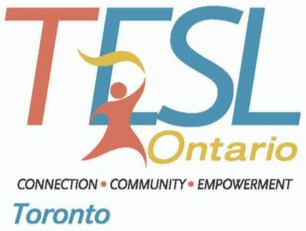Frequently Asked Questions
If you don’t find the answer to your question about TESL/TEFL training here, try TESL Ontario (for accreditation and membership information) or the forums at Dave’s ESL Cafe (for unofficial commentary). To learn more about jobs, see our Careers page.

What is the difference between TESL Canada and TESL Ontario accreditation?
In a nutshell, TESL Ontario accreditation involves training that is longer and more expensive, and it opens doors to more kinds of employment (see the Careers page for additional details).
- TESL Canada requires:
- 100 hours of ESL theory and methodology
- 10 hours of observing an experienced teacher
- 10 hours of practicum (supervised practice teaching)
- an undergraduate university degree in any field
- TESL Ontario requires:
- 250 hours of ESL theory and methodology
- 30 hours of observing an experienced teacher
- 20 hours of practicum (supervised practice teaching)
- an undergraduate university degree in any field
Why is accreditation necessary?
TESL Canada or TESL Ontario accreditation is like a ‘stamp of approval’ that tells potential employers that your training program actually taught you something. Most Canadian employers require either TESL Canada or TESL Ontario accreditation.
What is the difference between TESL and TEFL?
TESL (teaching English as a second language) refers to programs in English-speaking countries for students whose first language is not English. TEFL (teaching English as a foreign language) refers to programs that teach English in countries where English is not the main language. In terms of training programs, they are often used interchangeably.
What kind of training do I need to teach overseas (EFL)?
Some employers do not require any special training if you are a native speaker with a university degree. However, most reputable schools require CELTA or TESL Canada certification. If you want to teach in a specific place, you should look for professional organizations of English language teachers in that country to get up-to-date information on qualifications and job prospects.
Do I need a university degree to teach ESL/EFL?
You need a degree to get TESL Canada or TESL Ontario accreditation, which is required by most Canadian employers. However, you can take CELTA training and teach in some overseas schools without a degree.
What is CELTA? How is it different from TESL Canada or TESL Ontario?
CELTA (Certificate in English Language Teaching to Adults) is a TEFL training program administered worldwide by the University of Cambridge. If you’re planning to teach English overseas, CELTA is the most internationally recognized ‘brand’ in teacher training. If you have a university degree and CELTA, you can usually get TESL Canada accreditation.
I studied TESL/TEFL, but not in a TESL Canada recognized program. Can I still get accredited?
If you took TESL training outside of Canada or in a non-recognized Canadian program and would like to find out if you are eligible for certification, check out the websites of TESL Canada or TESL Ontario for more information or contact them directly.
Where can I take TESL/TEFL training?
Lists of accredited training institutions (universities, colleges and private schools) are available on TESL Canada and TESL Ontario‘s websites.
What are the job prospects like in Toronto?
Full-time, stable jobs in ESL in Toronto are rare: most teachers work short-term contracts without vacation or benefits. The best time to find work in Toronto is July and August, when full-time teachers are on vacation and international students flock to the city.
